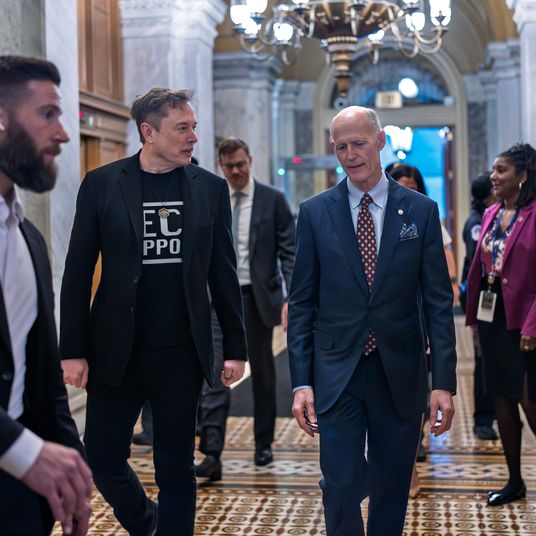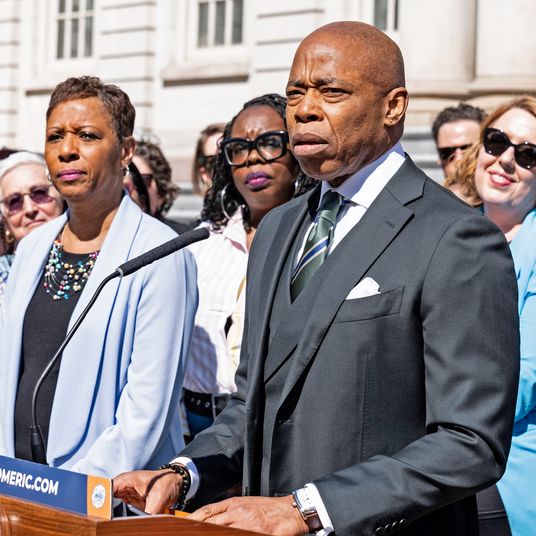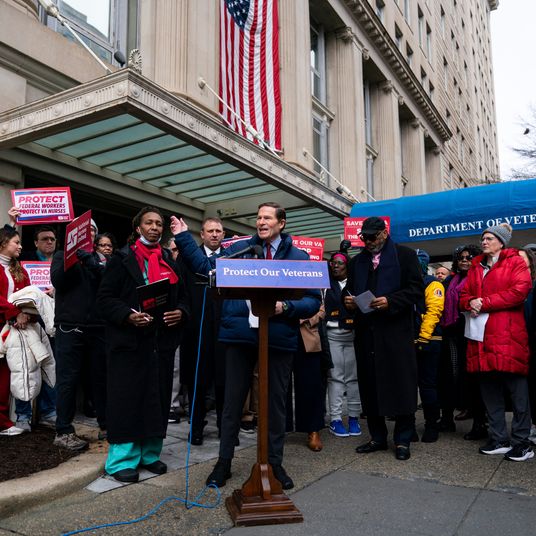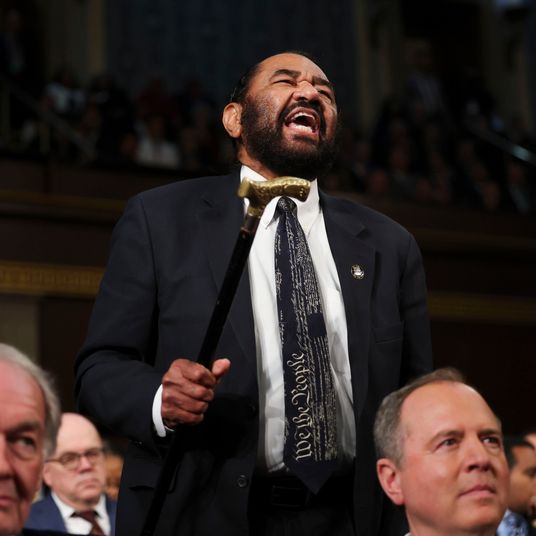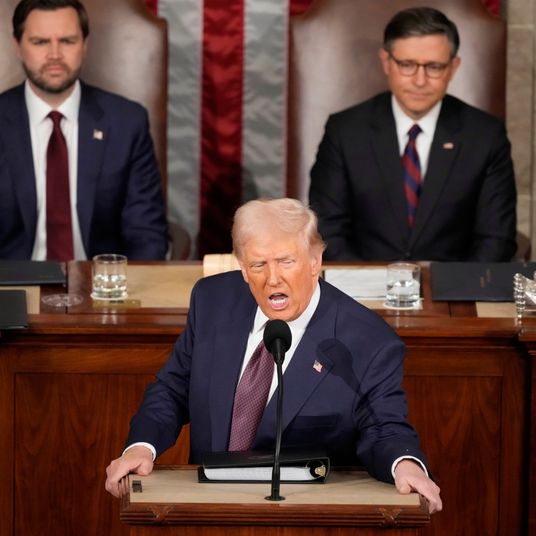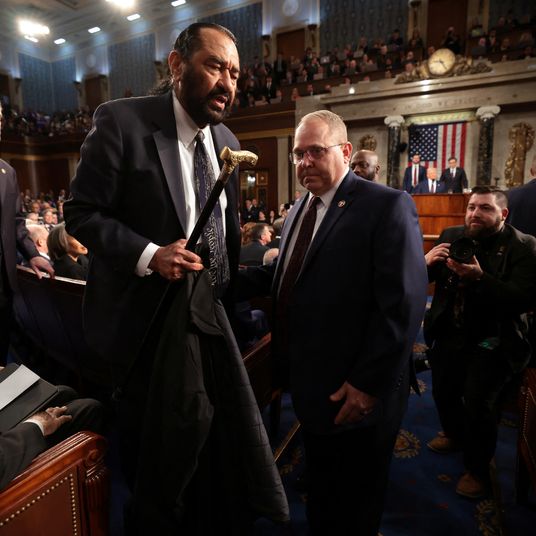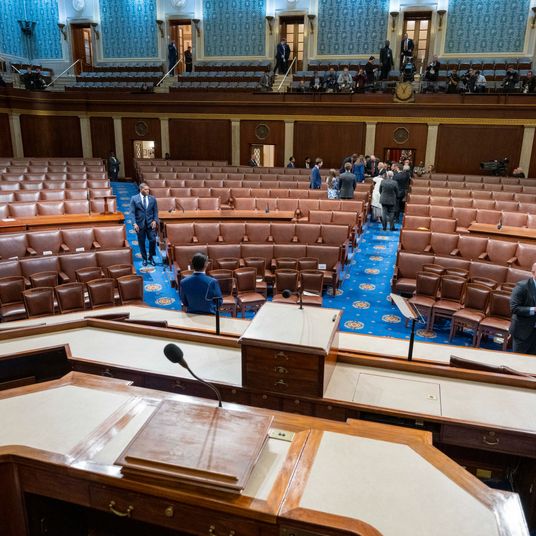
Eleven days ago, the Republicans’ years-long effort to repeal Obamacare culminated in a humiliating defeat, with House Speaker Paul Ryan acknowledging that he was canceling the vote on his health-care plan because he couldn’t muster enough GOP support. On Monday night, Republican representatives said the White House is working on a proposal that would revive the American Health Care Act — which had the support of only 17 percent of Americans — by removing one of the most popular Obamacare provisions. And they predict it may pass by Friday.
After members of the Freedom Caucus met with Vice-President Pence, White House Chief of Staff Reince Priebus, and Budget Director Mick Mulvaney on Monday, Representative Mark Meadows, who chairs the far-right group, said administration officials offered a “solid idea,” though “there is no deal, in principle.”
“They’ve laid out a plan that we’re waiting to see what the legislative text actually outlines,” Meadows said. “But we remain open-minded and willing to look in detail at the details of the plan, and so we are hopeful that we will get the legislative text within the next 24 hours.”
Meadows said the plan would allow states to apply for federal waivers exempting them from the Affordable Care Act’s requirement that insurers cover “essential health benefits,” such as hospitalizations and maternity care. They would also be allowed to opt out of the “community rating” requirement, which says prices can only vary based on age, geographical area, and tobacco use.
Those changes would lower costs for younger, healthier people, but it would accomplish that by making insurance far more expensive for older, sicker people and anyone planning to have a baby. That would make Obamacare’s protections for people with preexisting conditions meaningless. That provision is so popular that a recent Kaiser Health Tracking Poll found that among the 26 percent of Americans who want Obamacare repealed, 38 percent changed their mind when told that would mean insurers could deny coverage to people with preexisting conditions.
Meadows said that under the plan “marginally sick people” would pay the “risk cost associated with their coverage,” while those with catastrophic or long-term illnesses would be put in high-risk pools. As the New York Times notes, insurance in the high-risk pools that existed before the Affordable Care Act “tended to be expensive, and often came with long waiting periods or benefit limitations, even for the very sick.”
There have been rumblings about resurrecting the GOP health-care bill for days, but it’s unclear how the White House proposal will resolve the disagreements among House Republicans that killed the original version of AHCA. Trump administration officials met with members of the moderate Tuesday Group on Monday, and while they expressed optimism, it didn’t seem they were close to an agreement. “There’s more discussions to be had, but this was certainly a green light to continue these discussions with other members,” said Representative Chris Collins.
Meadows said the Freedom Caucus needs “a whole lot of information” as well, but weirdly both men expressed hope that there could be a vote before representatives leave for their long spring recess at the end of the week. “It was clear the president would be very happy come Friday to have this passed,” said Collins. “This could move fairly quickly.”
If the House GOP does manage to come together in the next four days, then they’ll just need to get the new bill through the Senate, where they can only afford to lose two votes, and confront the possibility that tinkering with health-insurance regulations in a budget reconciliation bill is against Senate rules.
As President Trump explained last week, “I know that we are all going to make a deal on health care. That’s such an easy one.”









